MOQUECA BAIANA
I had one of the best Moqueca Baiana at the Maria Mata Mouro Restaurant in Pelourinho. This dish is must try. It is a Brazilian fish stew prepared with with various kinds of seafood, coconut milk, palm oil and a variety of spices. There are different types but all have either fish or shrimps or both.
The restaurant has an appealing back courtyard albeit there are a lot of mosquitos.
The Restaurante do Convento in Pelourinho passes for one of the really good ones. It is worth a try.
ACARAJE
I loved this street food so much that it became my main food intake while in Salvador. This local so called fast food is cooked by the Bahianas de Acaraje. The name of this dish derives from the Acara and stands for “ball of fire”. Main ingredients are puree of beans or wild peas, onion shrimps and spices. You can determine the amount of spices.
It can be served with Vatapa i.e. breadcrumbs soaked in coconut milk, ginger, peanuts, palm oil and onion.
COCADAS
This sweet desert consists of a mixture of grated coconut, cinnamon, vanilla and condensed milk. They can be found in all Brazil.
CREPPE DE TAPIOCA
These crepes made out of tapioca flour can be eaten savory or with sweet stuffing. They are however not really typical for Salvador.
OTHER DISHES
Of course there a plenty of other dishes to be enjoyed not strictly typical to Salvador. One of my preferred ones are the fresh green beans cooked in water with onion, coriander and other yummy spices.
Or the feijoada which are black beans and pretty much the staple food in Brazil eaten with rice.
And, of course, fish of all types and sizes.
I have published three posts on Salvador. One general one on visiting Salvador, one on the typical Salvadorian food, and one on things that you should do when in the area.

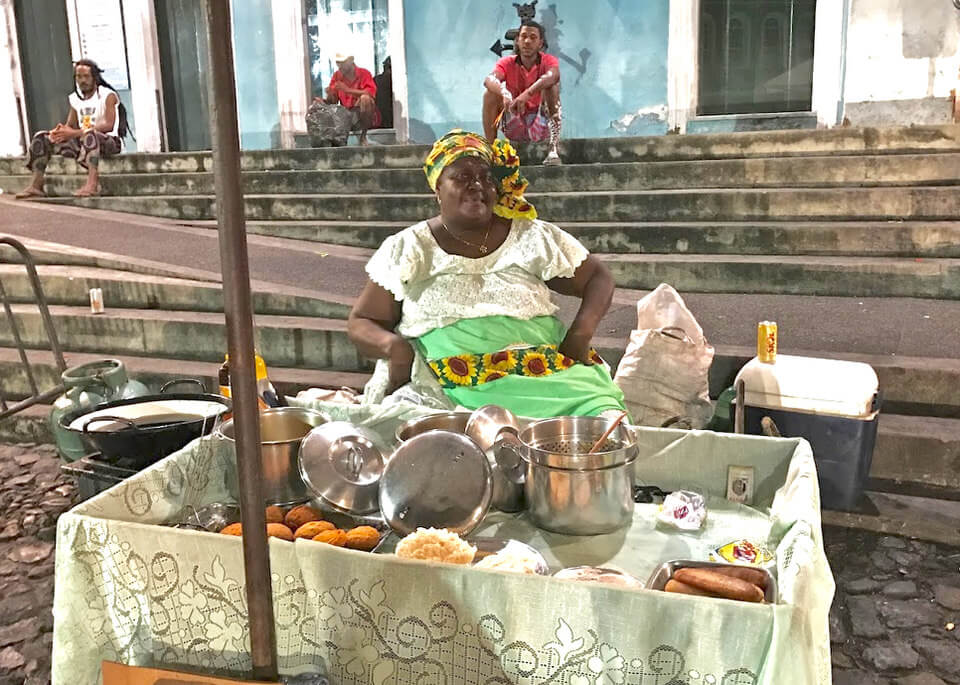
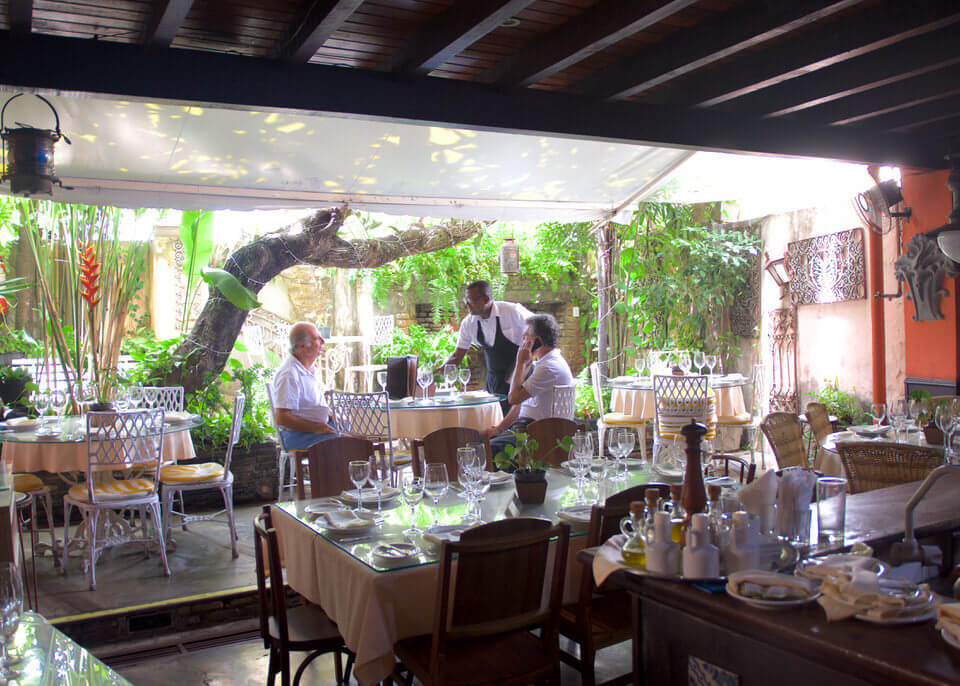
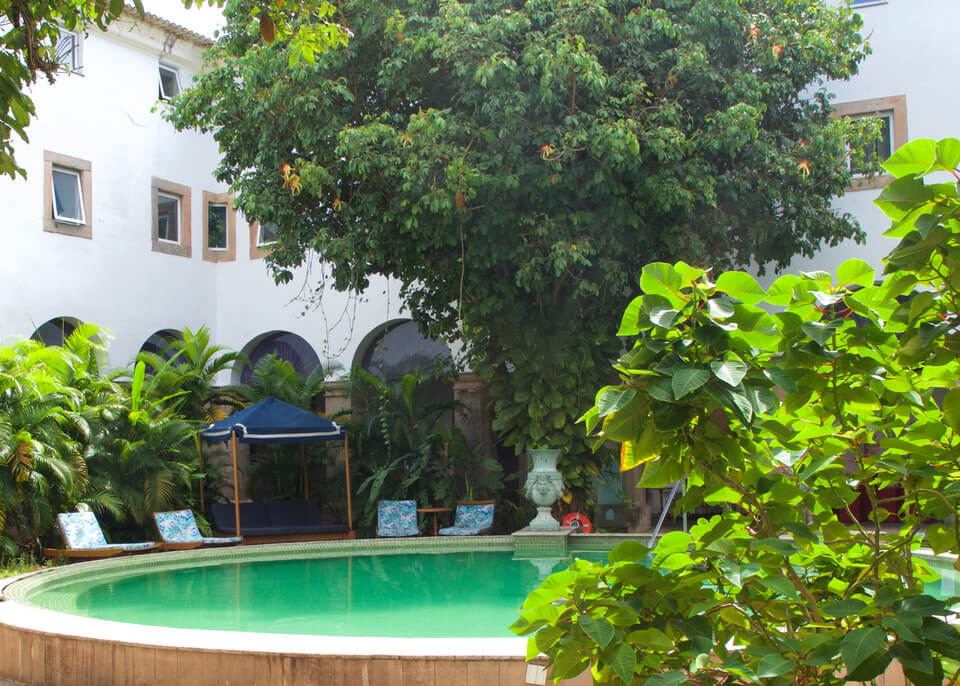
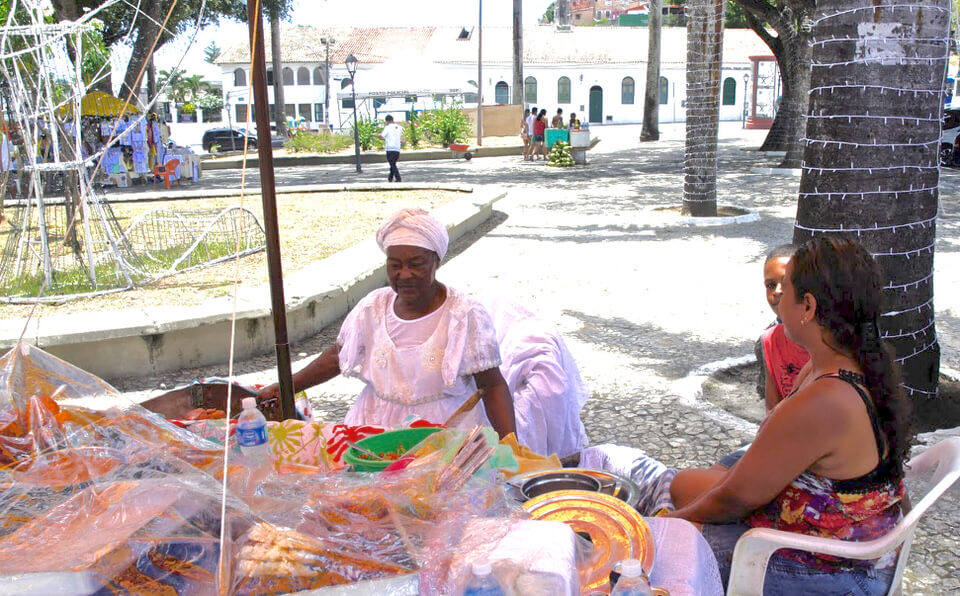
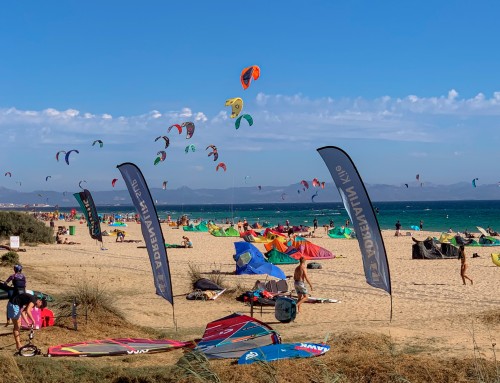
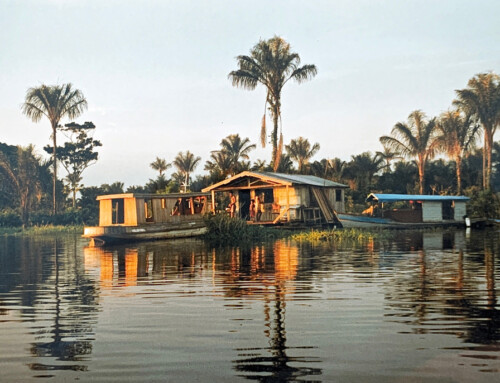
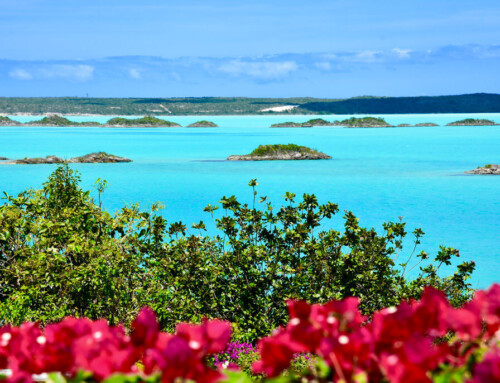
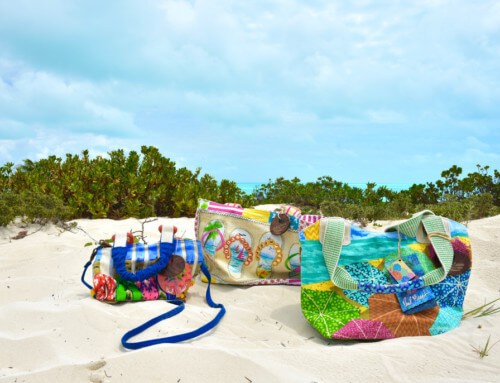
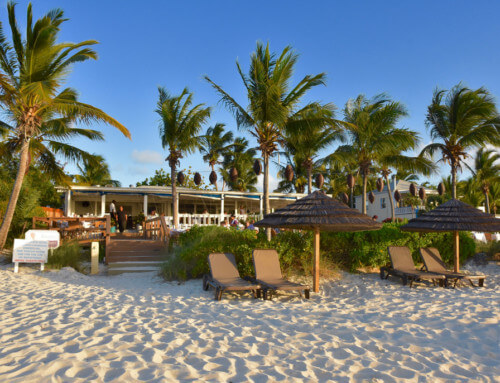
Wow akara is a great food I learned how to make it years ago from Nigerian friends on though we worship the orisha here in America we also make it for the orisha as well it is so good to see that African tradition and African foods still survive in certain places and the Western Hemisphere and it’s good that we are waking up to learn the foods of our ancestors
Thanks for your comment. I fully agree. All people have traditions and they should be kept alive. In a way, they are part of who we are.